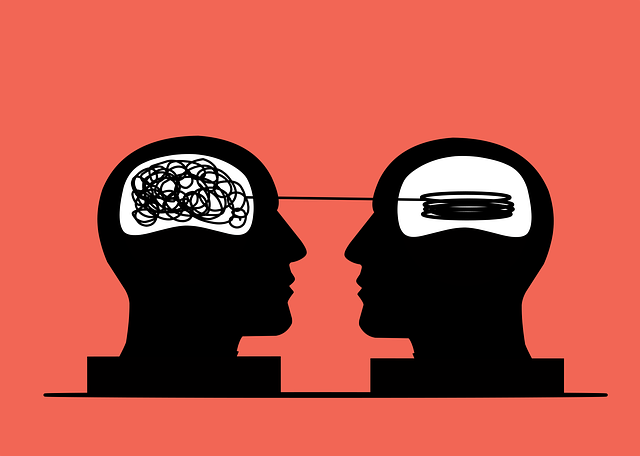Broomfield Gender Identity Therapy offers a unique group facilitation approach that fosters peer support and community within a safe, inclusive space. Through structured guidance, active listening, empathy, and clear boundaries, facilitators help participants explore identities, share experiences, and integrate self-care practices. This model not only empowers individuals to advocate for their mental health but also drives policy analysis and societal norm challenge. By building supportive networks, the therapy aims for systemic change in gender identity understanding and its intersection with mental health, while incorporating mindfulness and crisis intervention techniques to enhance overall wellness.
“Unleashing the power of group facilitation for mental wellness is a transformative approach, especially through the lens of Broomfield Gender Identity Therapy. This article delves into effective strategies for professionals aiming to create supportive group settings. From establishing trust and fostering inclusive environments to employing empathetic communication techniques, these methods enable facilitators to guide members towards personal growth. By exploring techniques like those seen in Broomfield Gender Identity Therapy, mental health support groups can become vibrant spaces of connection and healing.”
- Understanding Broomfield Gender Identity Therapy: A Framework for Group Facilitation
- Creating a Safe and Inclusive Environment: Building Trust in the Group Setting
- Effective Communication Strategies: Guiding Discussions with Empathy and Structure
- Fostering Supportive Relationships: Techniques to Encourage Connection and Growth
Understanding Broomfield Gender Identity Therapy: A Framework for Group Facilitation

Broomfield Gender Identity Therapy offers a unique framework for group facilitation that goes beyond traditional talk therapy models. This approach recognizes the power of peer support and community within a therapeutic setting, creating a safe space for individuals to explore their identities and navigate challenges related to gender expression. Facilitators act as guides, fostering open dialogue and encouraging participants to share their experiences in a non-judgmental environment. By integrating self-care practices and promoting mental health policy analysis and advocacy, this therapy model empowers group members to advocate for their own well-being and challenge societal norms that impact their mental health awareness and understanding.
The framework emphasizes the importance of building a supportive community where individuals can find validation, educate themselves, and support one another. This collective approach to mental wellness goes beyond individual therapy, aiming to create systemic change by fostering a deeper understanding of gender identity and its intersection with various aspects of mental health.
Creating a Safe and Inclusive Environment: Building Trust in the Group Setting

Creating a safe and inclusive environment is paramount for effective group facilitation, especially in Broomfield Gender Identity Therapy settings. Establishing trust among participants is fundamental to fostering open communication and encouraging vulnerability. Facilitators should aim to create a space where everyone feels seen, heard, and respected, regardless of their background or identity. This involves active listening, validating emotions, and ensuring all voices are equally valued. By promoting an atmosphere of acceptance and understanding, facilitators enable members to build meaningful connections and develop stronger coping mechanisms.
The process begins with setting clear boundaries and expectations, ensuring every participant understands the ground rules. It also includes incorporating diverse perspectives into discussions, celebrating individualities, and encouraging empathy among group members. These practices not only enhance mental wellness but also equip individuals with valuable social skills, fostering a supportive network that extends beyond the group sessions. This approach aligns with the design of effective Mental Health Education Programs and promotes the adoption of beneficial Self-Care Practices within the group dynamic.
Effective Communication Strategies: Guiding Discussions with Empathy and Structure

Effective communication is a cornerstone of successful group facilitation, especially when addressing sensitive topics like gender identity as seen in Broomfield Gender Identity Therapy. Facilitators must guide discussions with empathy and structure to create a safe, inclusive space for all participants. This involves active listening, where facilitators reflect on and paraphrase individuals’ experiences, fostering an environment of understanding and trust.
Structure is also vital; introducing clear agendas, setting boundaries, and encouraging respectful exchanges helps manage conversations. Incorporating mindfulness meditation techniques or stress management workshops within the group can further enhance cultural sensitivity in mental healthcare practice by promoting self-awareness and emotional regulation among members. These strategies collectively contribute to a more productive and therapeutic atmosphere, benefiting participants’ overall mental wellness.
Fostering Supportive Relationships: Techniques to Encourage Connection and Growth

Fostering supportive relationships is a cornerstone of effective group facilitation, especially in contexts like Broomfield Gender Identity Therapy where creating a safe and inclusive environment is paramount. Techniques such as active listening, empathetic response, and structured activities that encourage personal sharing can significantly enhance connection among group members. By facilitating open dialogue and fostering an atmosphere of understanding and acceptance, mental health professionals can help individuals process their experiences, challenge negative beliefs, and build resilience.
This approach not only promotes personal growth but also strengthens the therapeutic bond within the group. Incorporating elements from Crisis Intervention Guidance and Trauma Support Services, facilitators can guide members through difficult discussions while ensuring a structured, supportive space. Effective relationship-building techniques contribute to successful risk management planning for mental health professionals, creating an environment where every individual feels valued, heard, and supported in their journey towards mental wellness.
Broomfield Gender Identity Therapy offers a powerful framework for group facilitators to create transformative experiences. By implementing these facilitation techniques, professionals can build safe, inclusive spaces where individuals feel trusted and supported. Effective communication strategies guide meaningful discussions, fostering connections that encourage personal growth. Ultimately, these methods enhance mental wellness, making group settings a game-changer in therapeutic support.














